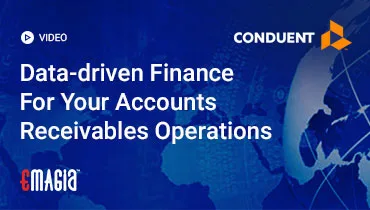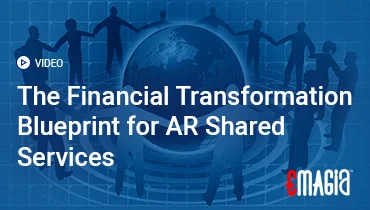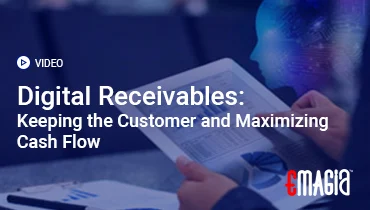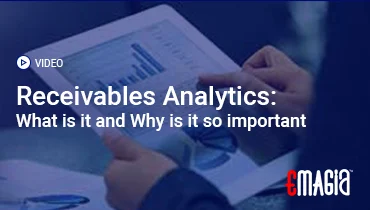Introduction to Payable on Death (POD) Accounts
Payable on Death (POD) accounts, also known as Totten trusts, are financial arrangements that allow account holders to designate beneficiaries who will receive the account’s assets upon the holder’s death. This mechanism facilitates the seamless transfer of funds, bypassing the often lengthy and costly probate process. By setting up a POD account, individuals can ensure that their assets are distributed according to their wishes, providing clarity and efficiency in estate planning.
Understanding the POD Acronym
What Does POD Stand For?
POD stands for “Payable on Death.” This designation indicates that the assets in the account will be directly transferred to the named beneficiary upon the account holder’s death, without the need for probate.
The Legal Framework of POD Accounts
POD accounts are recognized legal arrangements that operate under state laws governing estate transfers. They are typically used for bank accounts, certificates of deposit (CDs), and other financial instruments. The account holder retains full control over the assets during their lifetime, and the beneficiary has no access until the holder’s death.
Benefits of POD Accounts in Estate Planning
Avoidance of Probate
One of the primary advantages of POD accounts is the avoidance of probate. Probate is the legal process of validating a will and distributing assets, which can be time-consuming and expensive. By designating a POD beneficiary, the assets transfer directly, saving time and reducing legal costs.
Simplified Asset Distribution
POD accounts streamline the distribution process. Beneficiaries can access funds promptly by providing a death certificate and identification, ensuring that financial needs are met without delay.
Flexibility and Control
Account holders can modify or revoke POD designations at any time, providing flexibility to adapt to changing circumstances. This control ensures that the estate plan remains aligned with the holder’s intentions.
Potential Drawbacks and Considerations
Limited Scope
POD accounts are applicable only to certain types of assets, such as bank accounts and CDs. They do not cover real estate, personal property, or other investment accounts, which may still require probate or other estate planning tools.
Coordination with Overall Estate Plan
It’s crucial to ensure that POD designations align with the broader estate plan. Conflicts between POD beneficiaries and will provisions can lead to legal disputes and unintended distributions.
Tax Implications
While POD accounts bypass probate, they do not exempt beneficiaries from potential estate or inheritance taxes. Beneficiaries should be aware of any tax liabilities associated with the inherited assets.
Setting Up a POD Account
Steps to Establish a POD Designation
- Consult with Your Financial Institution: Inquire whether your bank or credit union offers POD designations for your accounts.
- Complete the Necessary Forms: Fill out the required beneficiary designation forms provided by the institution.
- Provide Beneficiary Information: Accurately detail the beneficiary’s full name, relationship, and contact information.
- Review and Update Regularly: Periodically review your POD designations to ensure they reflect your current wishes and circumstances.
Comparing POD Accounts with Other Estate Planning Tools
POD Accounts vs. Trusts
While both POD accounts and trusts aim to facilitate asset transfer upon death, they differ in complexity and scope.
- POD Accounts: Simpler to set up, limited to specific financial accounts, and do not cover a wide range of assets.
- Trusts: More comprehensive, can include various asset types, and offer greater control over distribution terms but require more complex setup and management.
POD Accounts vs. Joint Ownership
Joint ownership allows multiple individuals to own an account, with rights of survivorship. Upon the death of one owner, the surviving owner(s) retain ownership. However, joint ownership can complicate estate planning, especially if the co-owners have differing intentions.
How Emagia Enhances Estate Planning with POD Accounts
Streamlining Financial Operations
Emagia offers advanced financial solutions that can aid in managing and monitoring POD accounts. By integrating Emagia’s tools, individuals can gain better visibility into their financial assets, ensuring that POD designations are effectively managed.
Ensuring Compliance and Accuracy
With Emagia’s robust compliance features, users can ensure that their POD accounts adhere to legal requirements, reducing the risk of disputes and ensuring that beneficiaries receive assets as intended.
Facilitating Communication
Emagia’s platforms can assist in maintaining clear records and communications regarding POD designations, making it easier for estate executors and beneficiaries to access necessary information when needed.
Frequently Asked Questions (FAQs)
What is a POD account?
A Payable on Death (POD) account is a financial account that allows the account holder to designate a beneficiary who will receive the account’s assets upon the holder’s death, bypassing probate.
Can I change my POD beneficiary?
Yes, account holders can modify or revoke POD designations at any time by contacting their financial institution and completing the necessary forms.
Do POD accounts avoid taxes?
While POD accounts bypass probate, they do not exempt beneficiaries from potential estate or inheritance taxes. Beneficiaries should consult with a tax advisor to understand any liabilities.
Are POD accounts suitable for all assets?
No, POD accounts are typically limited to bank accounts and CDs. Other assets, such as real estate or investment accounts, may require different estate planning tools.
What happens if my POD beneficiary predeceases me?
If a POD beneficiary dies before the account holder and no alternate beneficiary is named, the account may become subject to probate, and the funds would be distributed according to the account holder’s will or state intestacy laws. It is important to regularly review and update your POD designations to avoid this situation.
Can a POD designation override a will?
Yes, a POD designation typically supersedes instructions in a will. That means even if your will states otherwise, the funds in a POD account will go to the named beneficiary. It’s crucial to ensure consistency across all estate planning documents to prevent confusion or legal conflict.
Is there a limit on how many POD beneficiaries I can name?
Most financial institutions allow you to name multiple POD beneficiaries. You’ll need to specify how the funds should be divided among them. Always confirm with your bank’s policies and use precise, updated information.
How do I claim funds from a POD account as a beneficiary?
As a beneficiary, you usually need to present a valid government-issued ID and a certified copy of the account holder’s death certificate to the financial institution. Once verified, the institution will release the funds to you.
Do all banks offer POD accounts?
Most banks and credit unions offer the option to set up POD designations, especially for savings accounts, checking accounts, and certificates of deposit. However, availability may vary by institution, so it’s best to inquire directly.
Conclusion: Why You Should Consider a POD Account
Payable on Death (POD) accounts offer a simple, effective, and legally sound method of ensuring your assets are transferred directly to your intended beneficiaries without delay or court involvement. By avoiding probate, they reduce legal complexity, protect privacy, and save both time and money for your loved ones.
While POD accounts aren’t a one-size-fits-all solution, they can play a vital role in a comprehensive estate plan when coordinated with other tools such as wills, trusts, and durable powers of attorney. Working with a qualified estate planner and leveraging platforms like Emagia for enhanced financial visibility and compliance can ensure that your legacy is preserved exactly the way you envision it.



